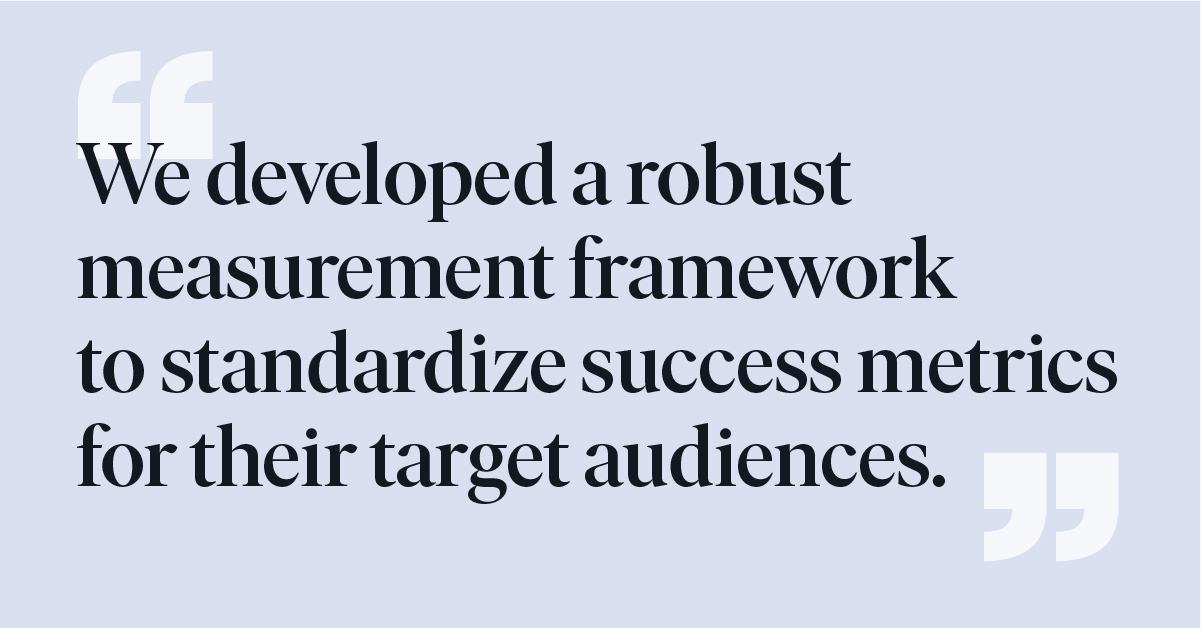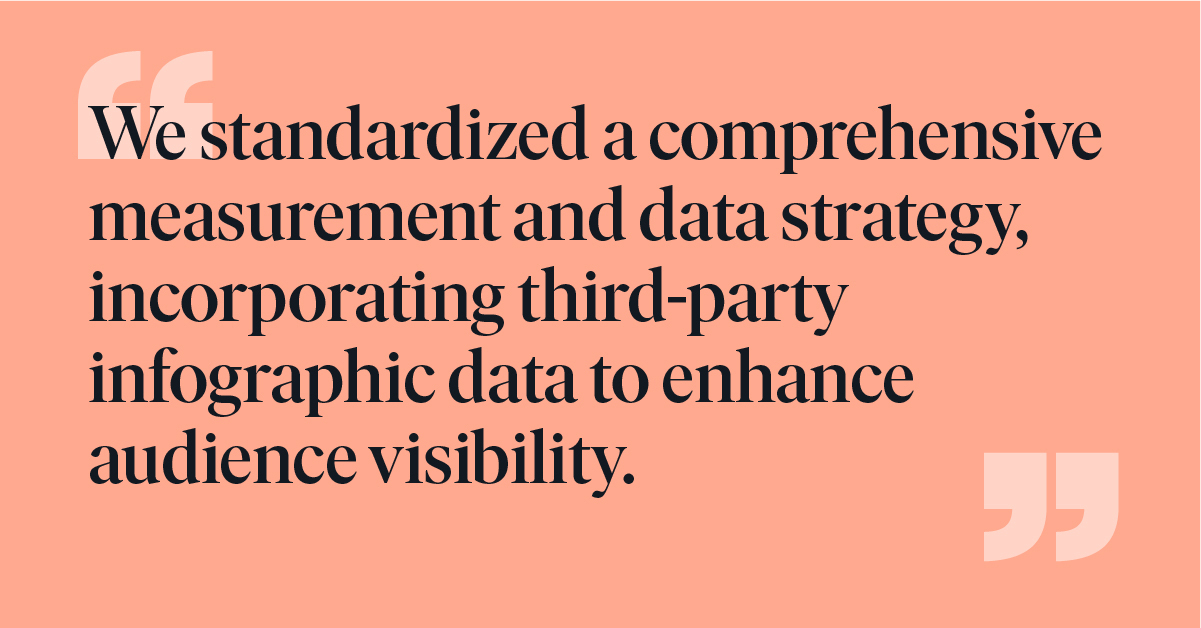Building the Right Decision Tools to Answer the Toughest Questions
For every organization, data is an incredibly valuable commodity. It’s a strategic resource that can fuel growth and innovation, unlock customer insights, and optimize operations. But as the amount of data grows exponentially, year over year, leveraging it also becomes increasingly difficult. Which is why decision tools are essential for organizations looking to simplify complex data and make more confident decisions. These tools can take various forms and include dashboards, reports, predictive analytics models, recommendation engines, and more.
There’s no one-size-fits-all approach, but before deciding which tool to implement or build, you should first take a deep dive to understand your needs. Every business has different objectives and challenges, so tailor your data and analytics solutions to develop the right tool for the job while remaining flexible enough to evolve as you learn.
One of our clients, a financial services company focused on their digital experience, needed to more comprehensively understand user engagement on their website and evaluate its overall effectiveness. To address this challenge, we undertook a detailed analysis of content relevance and current engagement performance. Leveraging these insights, we developed a robust measurement framework to standardize success metrics for their target audiences. This initiative not only streamlined the complexities involved but also established a solid reporting foundation that enables precise tracking and continuous improvement of digital engagement.

Next, determine what kind of data to utilize. Factoring in where it lives, who owns it, and how we can access it—all while ensuring it’s secure. You also need to determine the type of architecture and platform to support the data and decision tools you are looking to create. At Sullivan, we work with all first, second, and third-party data sources such as web analytics, media, email, social, CRM, etc.
From there you need to craft a data and measurement strategy. A data strategy focuses on how we access, process, store, and transform data securely. This ensures data integrity and enables a scalable foundation. A measurement strategy defines a standardized approach to evaluate data with clear KPIs and metrics. This consistency allows us to track performance accurately and demonstrates progress effectively.
Establishing a robust strategy ensures that the data is accessible, high-quality, secure, and available to all. But all the data in the world won’t solve a single problem if you don’t standardize measurement. Implementing the right tech stack, data transformation procedures, and governance program ensures we have the right tools and foundation for the problem that we are solving. A proper measurement foundation helps keep everyone on the same page, especially when it comes to alignment across cross-functional teams.
Finally, it’s time to create a narrative. Used properly, data and analytics can craft an effective story that resonates with the C-suite and internal stakeholders across departments such as finance, comms, human resources, and others – enabling everyone to make more informed strategic decisions.
Here are some things we think about when it comes to implementation:
- Where can data help you tell a stronger narrative to your team?
- What strategies can you deploy to help foster data driven cultures?
- How can we continue to adapt to ever-changing data privacy and security regulations?
For our client THL, uncovering insights into how website engagement informs their sales cycle has historically been a challenging task. To overcome this, we standardized a comprehensive measurement and data strategy, incorporating third-party infographic data to enhance audience visibility. This approach added a layer of intelligence behind each click, providing precise answers about who is engaging with what specific content. By doing so, we were able to uncover valuable insights into their sales pipeline, transforming their understanding of digital interactions and significantly informing their strategies.

At Sullivan, our expertise goes beyond building decisions tools for our clients, we also use them in our everyday work. Whether that’s leveraging data to redefine brand identities and improve market positioning, enhancing the user experience and tracking performance to ensure a website redesign meets business objectives, or creating proprietary tools that provide clear, actionable insights for strategic decision-making via dashboards and reporting—decision tools are a vital part of our client’s success and our own.

